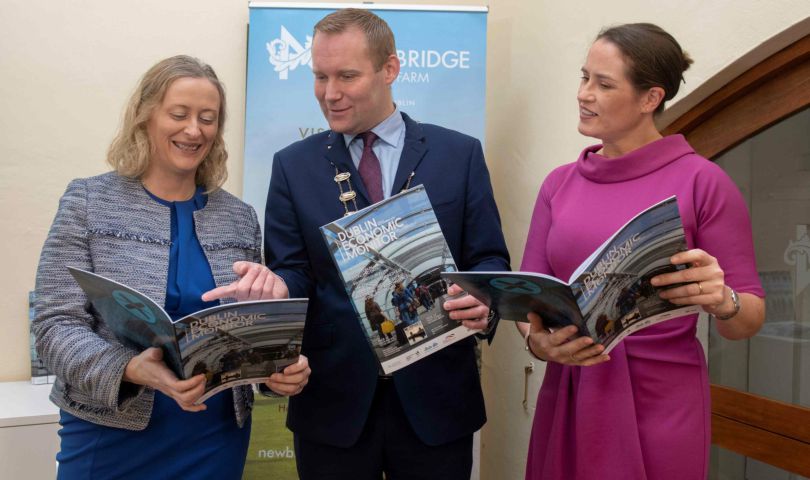Economic growth is slowing in Dublin but the business picture is a good one overall for the capital, according to the latest edition of the quarterly Dublin Economic Monitor (DEM).
The DEM is a joint initiative of the four Dublin local authorities, produced by EY-DKM Economic Advisory.
Among the highlights of the Q3 DEM:
- Dublin’s unemployment rate remained unchanged at 4.4% in Q2 2019, the lowest rate since Q1 2005;
- Property prices in the capital eased by 0.3 year-on-year through August. However, on a monthly basis prices rose for the fourth consecutive month, (+0.6%);
- Dublin rents continue to rise strongly, at +3.4% through the second quarter when compared with the same time last year;
- Consumer spending in Dublin continues to grow, with retail spend in Dublin exceeding national levels;
- The Dublin PMI recorded its slowest pace of expansion since Q2 2013 following three consecutive quarters of deceleration. Despite this, it continues to indicate solid growth.
The DEM was launched at an event hosted by Fingal County Council today (November 12). Commenting on the report, Ciara Morley, senior consultant at EY-DKM Economic Advisory, noted that Dublin Tourism showed growth of 8.3% in Q3.
“However, UK tourist spending contracted for the third consecutive quarter, indicating that UK tourists are considering postponing foreign trips as they reassess their expenditure in light of Brexit,” Morley added.
Optimism Falling
Separately, an AIB report published this week revealed that optimism among Irish companies has fallen to its weakest point in nine years.
The latest AIB Ireland business activity insight report is based on surveys conducted by IHS Markit among 650 businesses in the manufacturing and services sectors in the Republic of Ireland in October last.
The report also reveals that profitability expectations among Irish business are the lowest in more than eight years.
Growth expectations among Irish firms have been on a downward trend over the past 12 months, with a net balance of just +27% of surveyed business forecasting business activity to be higher than current levels in one year’s time.
Additionally, profit expectations among Irish businesses have more than halved over the past year, bringing profit optimism to its lowest point since June 2011 (+15%).
AIB reported that the overall degree of hiring optimism among service firms is the weakest since June 2012, reflecting concerns from other sectors over finding and retaining skilled workers. As a result, businesses expect that staff costs will ‘increase strongly’ over the coming year, with a net balance of +49% of Irish businesses expecting a greater wage bill.
Hilary Gormley, head of business banking with AIB, said that while still in positive territory, the latest data gathered for the AIB report shows a continued period of reduced optimism among Irish businesses.
“It is clear that the ongoing uncertainty surrounding Brexit and its broader potential impact on the Irish economy is dampening sentiment across sectors.
“Positively, projected increase in R&D spending across Irish manufacturing and services sectors is encouraging. R&D investment is a catalyst for new growth and the willingness to invest shows the resilience and forward planning of Irish firms to explore new products and markets and insulate themselves from some of the direct threats of Brexit."
Photo: Mayor of Fingal, Eoghan O’Brien, with Fingal County Council executives Emer O’Gorman (right) and Aoife Sheridan











